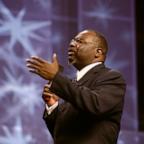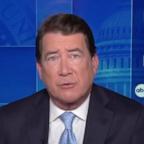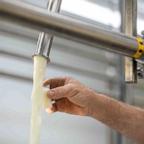A notable response came from Chief Justice John Roberts when Trump's attorney pushed for the justices to remand the case back down to the lower courts to sort through which allegations in the indictment amount to an "official act" under the presidency versus those that were private and outside the office's authority -- and potentially criminally liable.
"The official stuff has to be expunged completely from the indictment before the case can go forward," John Sauer said.
"That's like a one-legged stool, right?" Roberts responded. "I mean, giving somebody money isn't bribery unless you get something in exchange. If what you get in exchange is to become the ambassador to a particular country, that is official, the appointment, it's within the president's prerogatives. The unofficial part is 'I'm going to get a million dollars for it.'"
In an unusual moment after this exchange, Justice Clarence Thomas raised unprompted whether Trump's legal team was challenging the legality of the appointment of special counsel Jack Smith -- a questionable theory previously pushed by right-wing lawyers like former Attorney General Ed Meese.
Sauer said Trump's legal team was making that argument in his separate Florida federal case, in which Trump is accused of mishandling classified information while out of office, but they weren't doing so directly in this case, to which Thomas did not follow up.
Justice Samuel Alito then asked Sauer if all official acts alleged in the indictment should be excluded from trial, to which Sauer answered they should.
But Justice Sonia Sotomayor pressed back on the notion of remanding the case, which outside observers see as one potential outcome that would likely draw out the lower court proceedings for many months, past the November election.
Sotomayor argued that even in the instances of acts that could be considered official, they came in the context of Trump pushing forward in his "private" intent of remaining in office despite losing to Joe Biden.
"I don't think the indictment is charging that the obstruction occurred solely because of conversations with the Justice Department," she said. "They're saying you look at all of the private acts and you look in the context of some of the public acts, and you can infer the intent, the private intent, from them."




